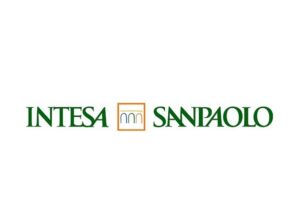ABOUT US
The importance for Italy of having a reference framework for reflection on European economic policies is becoming evident year after year. The rules governing public intervention in the economy are at the center of every political discussion, as well as of government activity in Italy. The margins for intervention in budgetary policy are strictly dependent on European negotiations. The country’s financial stability depends directly on the choices of the single monetary policy of the euro area. The development of Italy’s and euro-area economic activities is linked to the correct use of European funds for recovery and resilience. The challenges of the coming years, from the ecological transition to the recovery after the pandemic and the war in Ukraine, from the reorganization of the health and welfare systems to the redefinition of value chains, all have a dimension that transcends national borders. It is about organizing the supply of “global public goods” for which Europe is the appropriate playground.
Rooted in the pre-existing School of European Political Economy, the Luiss Institute for European Analysis and Policy (LEAP) performs policy-oriented and funded research, which also supports the postgraduate training activities of the Luiss Post Graduate Schools. The aim of the institute is to animate the debate on European economic governance and industrial policy with in-depth analyses leading to empirically grounded policy recommendations.
Research is carried out in the following areas:
• European economic governance: monetary policy, fiscal policy coordination, banking regulation
• European industrial policy: green, sustainable growth and the digital transition
LEAP produces working papers and policy briefs and promotes public engagement initiatives and other forms of research dissemination in the foregoing fields.
A substantial part of the industrial policy research is conducted by the Luiss University Hub for New Industrial Policy and Economic Governance (LUHNIP). In collaboration with German policy institute Dezernat Zukunft, LUHNIP is embedded in the European Macro Policy Network (EMPN), an inner-European network of institutions aimed at fostering discussions on financial, monetary and economic policy. LUHNIP specializes in two issues of growing international relevance: the European Union’s new industrial policy and the new forms of industrial policy for Italy’s economic renaissance.
PEOPLE
LEAP’s Dean is Valentina Meliciani and the President is Domenico Siniscalco. The area of European economic governance is headed by Carlo Bastasin and the area of European industrial policy is headed by Maria Savona. The President of the Scientific Council is Sabino Cassese. LUHNIP is managed by Donato Di Carlo.
Organizational Chart
Scientific Council
Advisory Board

Domenico Siniscalco
LEAP President
Riccardo Barbiero Hermitte

Carlo Bastasin
Gianluca Masini
Antonio Punzi
Luigi Federico Signorini
Marco Tronchetti Provera
Steering Committee
Senior Fellows
SEP Friends
SEP Friends brings together members of other Luiss schools and departments and other institutions (national and international, academic and otherwise). Contributors delve into issues related to SEP’s fields of study. This group meets at least once a year, and at the Director’s request.
Luiss SEP Strategic Policy Group
The Luiss SEP Strategic Policy Group, created in 2014, in addition to the members of the School’s Scientific Council, includes a small number of important exponents of Italian industry and finance and the heads of some public institutions active in economic and financial governance.
The Strategic Policy Group meets two or three times a year to discuss crucial issues of Italian and European governance and economic policies. Following each meeting and as a result of the discussion, the Group produces a policy brief which is then transmitted to the government authorities and subsequently circulated in Italy and abroad.
The Group’s aim is to identify strategic issues on which to express guidelines based on solid analyses implemented by the academic component, but also illuminated by the vision of the business leaders involved. The process of drawing up these guidelines uses the research results and, above all, the think tank activity carried out by SEP.


Researchers
Research Fellows
Staff